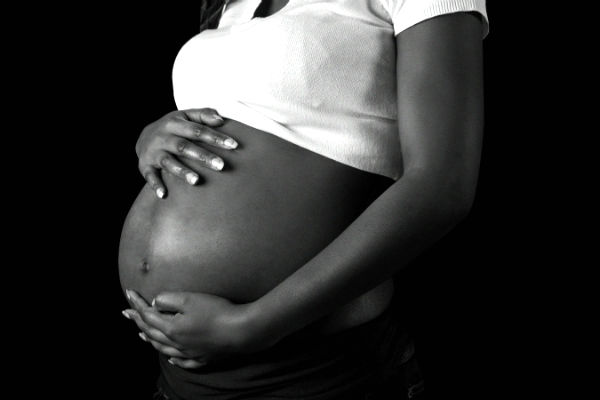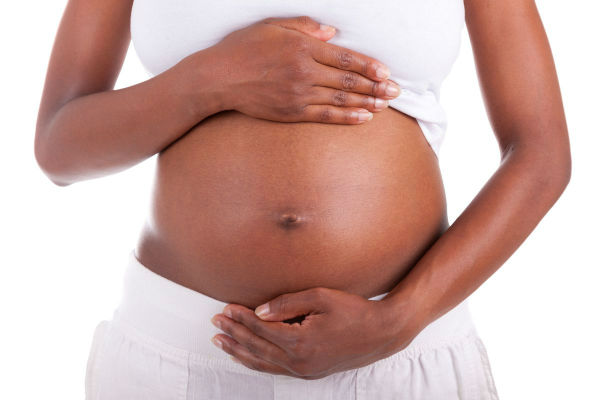
Dr. Kecia Gaither
I am a Maternal-Fetal Medicine Specialist and currently serve as the Director of Perinatal Services/Maternal-Fetal Medicine in an underserved area in NYC.
My hospital was one of those centered at “ ground zero” when the COVID-19 pandemic raised its formidable head. As such, I was one of the front-line healthcare providers who has seen the effects this virus has had on the demographic that I care for. I have seen and felt the fear of women who have been pregnant during this period of time, and have cared for those who have unfortunately been afflicted. Most survived, some didn’t. With the introduction of the vaccine, I was thrilled that there now existed a viable option to obviate COVID’s spread. I, as well as most of my colleagues, however, have been surprised and puzzled at the hesitancy of vaccination acceptance among our patient population—particularly given the marked disparity in adverse outcomes which plague people of color infected with COVID-19.
Vaccines are a critical tool in the armamentarium utilized to curb the COVID-19 pandemic. COVID-19 has had a marked disproportionate impact among under-represented communities of color—specifically African American, Hispanic American, Native American and particular subgroups of Pacific Islanders and Asians. This finding, as a constant undercurrent, is primarily due to pre-existing health disparities, social inequities, and access to healthcare; the COVID pandemic has made these issues glaringly apparent. Additionally, this demographic is more than likely to cohabit in multigenerational homes, live within higher housing densities, utilize public/shared transportation and have front-line service jobs—increasing exposure to the virus.
Despite the disproportionate morbidity and mortality experienced among people of color in relation to COVID, there still exists hesitancy toward vaccination against this virus. Various rationales for hesitancy prevail, and range from mistrust of the medical profession, suspicion of the “ warp speed” at which the vaccine was made, misinformation concerning its impact on fertility, wariness of the utilization of mRNA technology, having a “ wait and see” approach, concern for side effects, to the suspicion that mind-controlling nanotechnology exists within the vaccine.
Pregnant women are a special subset of the population that is at increased risk for high morbidity and mortality due to COVID 19 infection. The physiologic changes of pregnancy portend this finding due primarily to decreased lung capacity/function, and diminished immunologic competence. Underlying co-morbidities like obesity, hypertension, and diabetes– as examples– further increase the risk for poor outcomes with COVID -19 infection. The scientific literature and media reporting are replete with adverse perinatal outcomes among unvaccinated pregnant women infected with COVID-19—inclusive of increased risk of fetal/neonatal/maternal death, preterm delivery, low birth weight infants, thromboembolic phenomena, and hypertensive disorders to name a few.
Data supporting the use of the COVID-19 vaccine in pregnancy continue to emerge. It is well accepted that mothers who receive the vaccine afford protective antibodies for their unborn children via transplacental mechanisms. Organizations relegated to the care of the gravida—like ACOG and SMFM have put forth recommendations that “ COVID vaccines should not be withheld from pregnant individuals”, and that “ routine testing for pregnancy prior to the receipt of a COVID-19 vaccine is not recommended”. Worldwide experience of COVID-19 vaccination during pregnancy has yet to identify any indicators for concern, although the data is preliminary at best. Globally, many pregnant women have been noted to be receptive to the vaccination, however, hesitancy is higher among pregnant women in the United States as compared to other countries—specifically among Black pregnant women—the most vulnerable of the population at hand.
Vaccine acceptance rates vary in the US depending on demographic characteristics like age, sex, household income, and geographical location. Specific areas of the country noted to have the highest rates of vaccine hesitancy among Black pregnant women include areas of the South ( Arkansas, Mississippi, Louisiana, and Alabama, as examples) and New York ( specifically the Bronx). New York City represents a microcosm of maternal and child health in the US; more broadly, poor outcomes reflective of third-world countries exist in the Bronx. Drivers noted for this disparate finding include
- The highest rate of poverty in the state
- High rates of having no/poor insurance
- The highest rate of Medicaid enrollment in the state
- The highest rates of co-morbid illnesses exist, like diabetes and hypertension
- Highest rates of perinatal morbidity and mortality
- Highest rates of crowding /dilapidated housing
- Low levels of education
- High rates of front line low paying employment
The day-to-day living experience of the population of this area of NY places them at high risk of COVID-19 infection.
Related: Read more articles by Dr. Kecia Gaither.
Black women, as do most women, play a significant role as the health care decision-makers for their families. The willingness rate of vaccine acceptance, in this demographic, is alarming, and reflects an urgent need for outreach methodologies to address and accomplish multiple issues:
- Reduction in hospitalization among this demographic
- Reduction in adverse perinatal mortality
- Reduction of viral spread in their communities
Non-vaccinated individuals, who often are asymptomatic, ultimately pose a potential threat to the economic and social stability of the nation as a whole, due to the harboring and exponential spreading of the virus within the populace.

Specific dialog from national policymakers, insurers, media, health care providers and pharmaceutical companies are duly needed—particularly in those areas of highest hesitancy like the Bronx, to gain buy-in from this particular demographic toward vaccine acceptance. Research is needed to further understand the informational, emotional, and attitudinal factors contributing to COVID-19 vaccine hesitancy among this cohort. Having a significant grasp on these indicators will be helpful in developing better public health messaging to increase vaccination rates—ultimately decreasing infection rates and adverse perinatal outcomes in this group of women and the communities in which they live.
Harlem’s Kecia Gaither, MD, MPH, FACOG, is Director of Perinatal Services/Maternal Fetal Medicine at NYC Health + Hospitals/Lincoln, in the Bronx, NY. Gaither received her BA in biology from Barnard College , her MD from SUNY Health Science Center in Syracuse, and her MPH from Columbia University. Visit Gaither’s website at www.keciagaither.com, or see her on Twitter at @keciagaithermd. #womanshistorymonth
Become a Harlem Insider!
By submitting this form, you are consenting to receive marketing emails from: . You can revoke your consent to receive emails at any time by using the SafeUnsubscribe® link, found at the bottom of every email. Emails are serviced by Constant Contact








